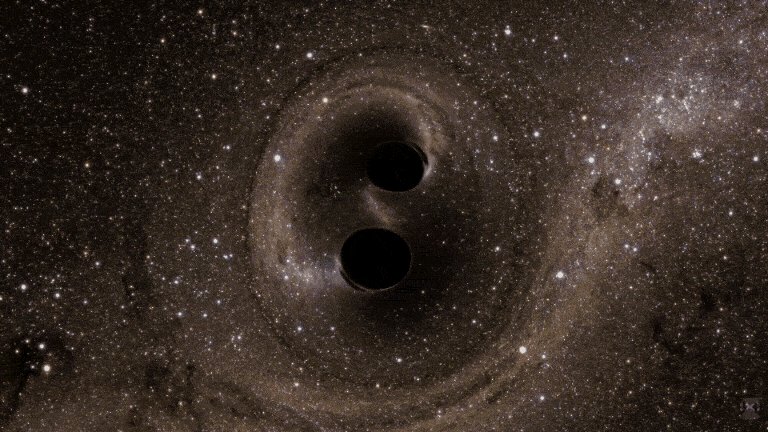
Alexander McNamara
Alexander McNamara is the Editor-in-Chief at Live Science, and has more than 15 years’ experience in publishing at digital titles. More than half of this time has been dedicated to bringing the wonders of science and technology to a wider audience through editor roles at New Scientist, BBC Science Focus, and now Live Science, developing new podcasts, newsletters and ground-breaking features along the way. In 2024 he was shortlisted for Editor of the Year at the Association of British Science Writers awards for his work at Live Science.
Before dedicating himself to science, he covered a diverse spectrum of content, ranging from women’s lifestyle, travel, sport and politics, at Hearst and Microsoft. He holds a degree in economics from the University of Sheffield, and before embarking in a career in journalism had a brief stint as an English teacher in the Czech Republic. In his spare time, you can find him with his head buried in the latest science books or tinkering with cool gadgets. (alexander.mcnamara@futurenet.com)
Latest articles by Alexander McNamara

Daily sudoku: Take a break with this classic numbers puzzle
By Alexander McNamara published
Get a new challenge every day with our free online sudoku puzzle.

50 mind-blowing science facts about our incredible world
By Laura Geggel published
Life's Little Mysteries If you're looking for weird facts about animals, gross human body facts or just something a bit random, get ready to geek out with these fascinating bits of trivia.

Crack these scientific numbers and constants and top the leaderboard
By Alexander McNamara published
Guess the number quiz Do you know your mathematical equations from your scientific constants? If you know your numbers then try our daily quiz.
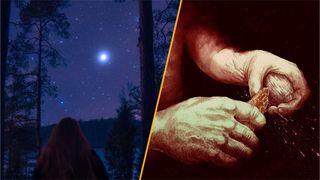
Neanderthals made fire, orcas and dolphins team up, and the 'Star of Bethlehem' explored
By Tia Ghose, Alexander McNamara published
Science news this week Dec. 13, 2025: Our weekly roundup of the latest science in the news, as well as a few fascinating articles to keep you entertained over the weekend.
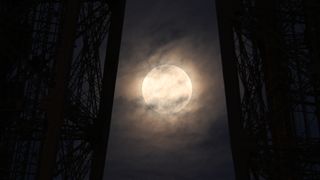
That was the week in science: Vaccine skeptics get hep B win | Comet 3I/ATLAS surprises | 'Cold Supermoon' pictures
By Ben Turner, Tia Ghose, Patrick Pester, Alexander McNamara last updated
Live blog Friday, Dec. 5, 2025: Your daily feed of the biggest discoveries and breakthroughs making headlines.

That was the week in science: Soyuz launch pad seriously damaged | 'Holy Grail' of shipwrecks | Interstellar object dangers
By Ben Turner, Alexander McNamara, Patrick Pester, Brandon Specktor last updated
Live blog Friday, Nov. 28, 2025: Your daily feed of the biggest discoveries and breakthroughs making headlines.
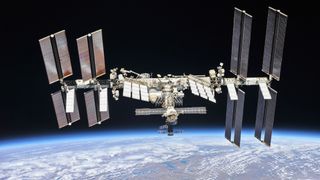
That was the week in science: CDC in turmoil | Moss survives space | Comet 3I/ATLAS images
By Ben Turner, Patrick Pester, Tia Ghose, Alexander McNamara last updated
Live blog Friday, Nov. 21, 2025: Your daily feed of the biggest discoveries and breakthroughs making headlines.

That was the week in science: New Glenn launch | China's astronauts return | 'Other' ATLAS explodes
By Ben Turner, Patrick Pester, Tia Ghose, Alexander McNamara last updated
Live blog Friday, Nov. 14, 2025: Your daily feed of the biggest discoveries and breakthroughs making headlines.
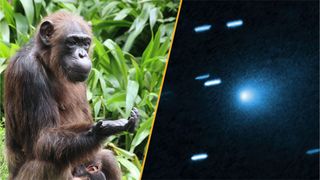
Thinking chimps and color-changing comets
By Alexander McNamara published
Science news this week Nov. 8, 2025: Our weekly roundup of the latest science in the news, as well as a few fascinating articles to keep you entertained over the weekend.

'Why would you even want to go?': Readers react to the hypothetical 400-year voyage to Alpha Centauri
By Elise Poore published
Would you leave Earth behind to travel to our nearest star system? Live Science readers reveal their thoughts about life among the stars.

'Lord, these affairs are hard on the heart': How Manhattan Project scientists reacted to the world's first atomic bomb test
By Alexander McNamara last updated
In this except from the biography of J. Robert Oppenheimer, we hear from the people at the historic first test of the atomic bomb in New Mexico.
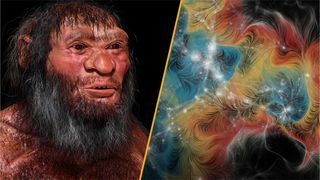
Science news this week: 'Dragon Man's' identity and the universe's 'missing matter'
By Alexander McNamara published
Science news this week June 21, 2025: Our weekly roundup of the latest science in the news, as well as a few fascinating articles to keep you entertained over the weekend.

48 best science books for kids and young adults
By Ben Biggs last updated
Looking to inspire the next generation of curious minds? These are our picks of the best popular science books for children of all ages.
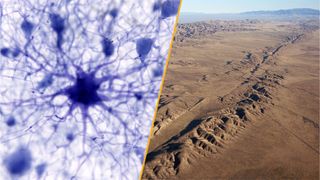
Science news this week: Overdue earthquakes and star-shaped brain cells
By Alexander McNamara published
Science news this week June 14, 2025: Our weekly roundup of the latest science in the news, as well as a few fascinating articles to keep you entertained over the weekend.

'Stranded' astronauts return and mystery human ancestor
By Alexander McNamara published
Science news this week March 22, 2025: Our weekly roundup of the latest science in the news, as well as a few fascinating articles to keep you entertained over the weekend.
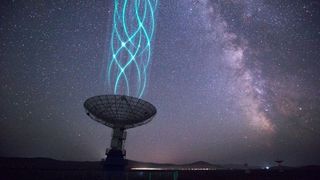
Extraterrestrials quiz: Are you an alien expert, or has your brain been abducted?
By Alexander McNamara published
Quiz Try this aliens quiz and see how much you know about our interstellar neighbors — if there are any.

Blood moon and a mysterious mummy
By Alexander McNamara published
Science news this week March 15, 2025: Our weekly roundup of the latest science in the news, as well as a few fascinating articles to keep you entertained over the weekend.
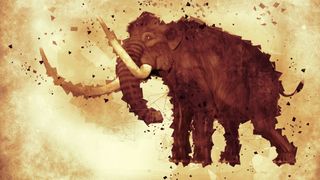
Should we bring back woolly mammoths?
By Alexander McNamara published
Poll Colossal scientists just created "woolly mice" in another step towards their ultimate goal of resurrecting woolly mammoths. But should we be tinkering with extinct species? Take our poll and have your say.
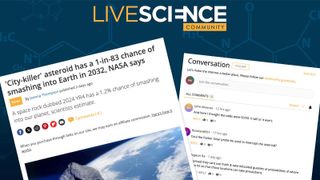
Commenting on Live Science articles
By Alexander McNamara published
We’re launching a commenting system on our site — here’s how to join the conversation on Live Science.

'A direct relationship between your sense of sight and recovery rate': Biologist Kathy Willis on why looking at nature can speed up healing
By Alexander McNamara published
Interview Biologist Kathy Willis spoke to Live Science about how touching wood makes us calmer, why looking at a picture of a savanna is calming and how walking through a forest changes our gut microbes.

Content funding on Live Science
By Alexander McNamara published
How we fund the content that you read on Live Science.
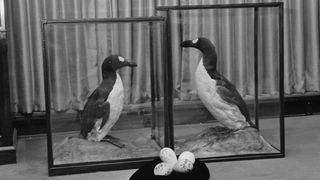
'It was clearly a human assault on the species': The fate of the great auk
By Alexander McNamara published
Two preserved great auk specimens displayed at a museum in 1971. The last pair of great auks were killed in 1844.
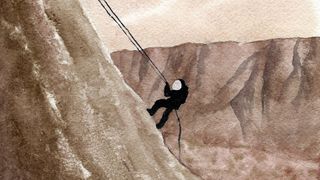
'Lost in insignificance': Here's what it's like to rappel into the solar system's largest canyon
By John E. Moores, Jesse Rogerson published
"You wanted this moment to belong just to yourself and the landscape: sunset on the rim of Valles Marineris, the largest canyon in the solar system."

Periodic table of elements quiz: How many elements can you name in 10 minutes?
By Alexander McNamara published
Quiz Can you name everything from Ac to Zr? Test your knowledge of the periodic table and see if you can top the leaderboard

'Can you predict the future? Yes, of course you can.': Inside the 1 equation that can predict the weather, sporting events, and more
By Tom Chivers published
"Life isn’t chess, a game of perfect information, one that can in theory be 'solved.' It's poker, a game where you're trying to make the best decisions using the limited information you have. "
Get the world’s most fascinating discoveries delivered straight to your inbox.
